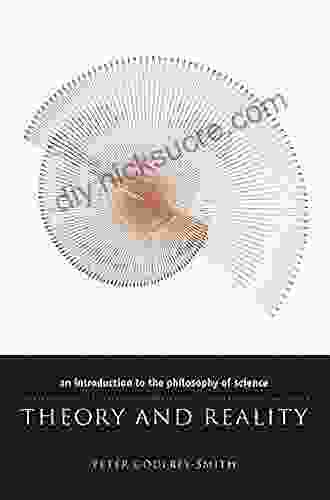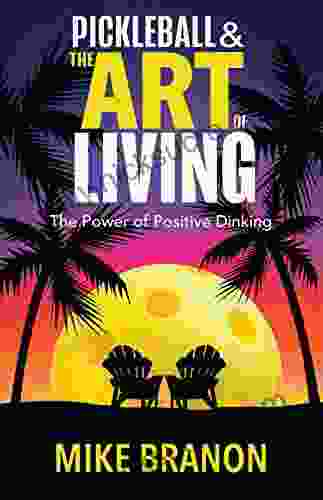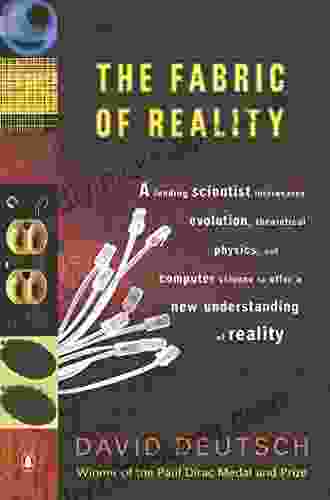An Introduction to the Philosophy of Science: Science and Its Conceptual Underpinnings

Science is often seen as a collection of facts and theories that describe the natural world. However, science is also a complex philosophical endeavor that involves a number of fundamental questions about the nature of reality, our knowledge, and our place in the universe.
In this article, we will explore some of the key philosophical issues that arise in the study of science. We will begin by discussing the nature of scientific knowledge and the methods by which scientists acquire it. We will then examine some of the key concepts that are used in scientific theories, such as laws of nature, causality, and probability. Finally, we will consider some of the ethical issues that arise in the practice of science.
One of the central questions in the philosophy of science is the nature of scientific knowledge. What is scientific knowledge, and how do we know that it is true?
4.4 out of 5
| Language | : | English |
| File size | : | 2704 KB |
| Text-to-Speech | : | Enabled |
| Screen Reader | : | Supported |
| Enhanced typesetting | : | Enabled |
| Word Wise | : | Enabled |
| Print length | : | 288 pages |
| Lending | : | Enabled |
There are a number of different theories about the nature of scientific knowledge. One view is that scientific knowledge is simply a collection of facts about the world. These facts are discovered through observation and experimentation, and they are organized into theories that explain how the world works.
Another view of scientific knowledge is that it is a set of beliefs that are supported by evidence. These beliefs are not necessarily true, but they are the best explanations that we have for the world around us.
A third view of scientific knowledge is that it is a social construct. This view holds that scientific knowledge is not simply a reflection of the world, but is also shaped by the social and cultural context in which it is produced.
The methods of science are the tools that scientists use to acquire knowledge about the world. These methods include observation, experimentation, and hypothesis testing.
Observation is the process of gathering information about the world through our senses. This information can be used to describe the world, to make predictions about the future, and to test hypotheses.
Experimentation is the process of testing hypotheses by manipulating the world and observing the results. This allows scientists to determine which hypotheses are supported by the evidence and which are not.
Hypothesis testing is the process of using evidence to support or reject hypotheses. A hypothesis is a tentative explanation for a phenomenon, and it is tested by comparing its predictions to the evidence. If the predictions are supported by the evidence, the hypothesis is considered to be confirmed. If the predictions are not supported by the evidence, the hypothesis is considered to be refuted.
The concepts of science are the building blocks of scientific theories. These concepts include laws of nature, causality, and probability.
Laws of nature are statements that describe regularities in the world. These laws are not absolute, but they are generally true and can be used to make predictions about the future.
Causality is the relationship between cause and effect. In science, a cause is an event that brings about another event, and an effect is an event that is brought about by another event.
Probability is a measure of the likelihood that an event will occur. In science, probability is used to quantify the uncertainty of our predictions.
The practice of science raises a number of ethical issues. These issues include the use of animals in research, the environmental impact of scientific research, and the potential misuse of scientific knowledge.
The use of animals in research is a controversial issue. Some people argue that animals should not be used in research because it causes them pain and suffering. Others argue that animal research is necessary to develop new medical treatments and save human lives.
The environmental impact of scientific research is another important ethical issue. Scientific research can have a negative impact on the environment, such as by polluting the air and water, and harming wildlife. Scientists have a responsibility to minimize the environmental impact of their research.
The potential misuse of scientific knowledge is a third ethical issue that arises in the practice of science. Scientific knowledge can be used for good or for evil. For example, scientific knowledge can be used to develop new medical treatments or to create weapons of mass destruction. Scientists have a responsibility to ensure that their knowledge is used for good and not for evil.
The philosophy of science is a complex and multifaceted field of study. In this article, we have only scratched the surface of some of the key philosophical issues that arise in the study of science. We have examined the nature of scientific knowledge, the methods of science, the concepts of science, and the ethics of science.
The philosophy of science is an important field of study because it helps us to understand the nature of science and its role in our world. By understanding the philosophy of science, we can better understand the world around us and make informed decisions about the future of science.
4.4 out of 5
| Language | : | English |
| File size | : | 2704 KB |
| Text-to-Speech | : | Enabled |
| Screen Reader | : | Supported |
| Enhanced typesetting | : | Enabled |
| Word Wise | : | Enabled |
| Print length | : | 288 pages |
| Lending | : | Enabled |
Do you want to contribute by writing guest posts on this blog?
Please contact us and send us a resume of previous articles that you have written.
 Fiction
Fiction Non Fiction
Non Fiction Romance
Romance Mystery
Mystery Thriller
Thriller SciFi
SciFi Fantasy
Fantasy Horror
Horror Biography
Biography Selfhelp
Selfhelp Business
Business History
History Classics
Classics Poetry
Poetry Childrens
Childrens Young Adult
Young Adult Educational
Educational Cooking
Cooking Travel
Travel Lifestyle
Lifestyle Spirituality
Spirituality Health
Health Fitness
Fitness Technology
Technology Science
Science Arts
Arts Crafts
Crafts DIY
DIY Gardening
Gardening Petcare
Petcare Larit Levy
Larit Levy Val Emmich
Val Emmich Dave Lowry
Dave Lowry Winston Starr
Winston Starr Anne Deans
Anne Deans A J Hamler
A J Hamler Harry Yoon
Harry Yoon Dan Limbaugh
Dan Limbaugh Chuck Whelon
Chuck Whelon N J Enfield
N J Enfield Michael D Coogan
Michael D Coogan Kerri Hummingbird Sami
Kerri Hummingbird Sami Homeira Qaderi
Homeira Qaderi Harrison Fluss
Harrison Fluss Bill Jones
Bill Jones Mj Porter
Mj Porter Joel David Hamkins
Joel David Hamkins Chris Diamond
Chris Diamond Walter Dean Myers
Walter Dean Myers Patrick Meechan
Patrick Meechan Dirk F Moore
Dirk F Moore Ilya Ru
Ilya Ru Peter Godfrey Smith
Peter Godfrey Smith Lou Tabory
Lou Tabory Raymond J Carroll
Raymond J Carroll Barbara J Bain
Barbara J Bain Caspar Craven
Caspar Craven Val Mcdermid
Val Mcdermid Michael Dell
Michael Dell Stephen R Lawhead
Stephen R Lawhead Shauna Lynn Panczyszyn
Shauna Lynn Panczyszyn Kenay Keira
Kenay Keira Todd Gitlin
Todd Gitlin Matthieu Ricard
Matthieu Ricard Chelsea Crockett
Chelsea Crockett Jane Austen
Jane Austen Jan Morris
Jan Morris Niall Ferguson
Niall Ferguson Sky Marsen
Sky Marsen Anna Goldsworthy
Anna Goldsworthy Anji Andrews
Anji Andrews Dr Howard Rankin
Dr Howard Rankin Abigail Burd Lcsw Pmh C
Abigail Burd Lcsw Pmh C Russell Davis
Russell Davis Frost Kay
Frost Kay David A Wells
David A Wells Laura Pohl
Laura Pohl Mitch Landrieu
Mitch Landrieu Dale P Clemens
Dale P Clemens Dane Huckelbridge
Dane Huckelbridge Cathy A Malchiodi
Cathy A Malchiodi Brad K Chambers
Brad K Chambers William Ramsey
William Ramsey Rekha Ramcharan
Rekha Ramcharan Adrian Dater
Adrian Dater Josh Skeen
Josh Skeen Ridge Magee
Ridge Magee Lindsey Vonn
Lindsey Vonn Paul Mccarthy
Paul Mccarthy Amos Yong
Amos Yong Michael Shingleton
Michael Shingleton Susan Aud Sonders
Susan Aud Sonders John L Messina
John L Messina Lilin Yang
Lilin Yang Joe Navarro
Joe Navarro Katerina Griffith
Katerina Griffith Brian Clegg
Brian Clegg Crystal Cestari
Crystal Cestari Jonalu Johnstone
Jonalu Johnstone Thomas Mcguane
Thomas Mcguane Businessnews Publishing
Businessnews Publishing Mark Obmascik
Mark Obmascik Rosie Garthwaite
Rosie Garthwaite Stan Tenen
Stan Tenen John Brenkus
John Brenkus Tiara R Brown
Tiara R Brown A K Davidson
A K Davidson Charles Edward Chapel
Charles Edward Chapel Certsquad Professional Trainers
Certsquad Professional Trainers Louis Jacques Dorais
Louis Jacques Dorais A J Mackinnon
A J Mackinnon Gary Gruber
Gary Gruber John Mordechai Gottman
John Mordechai Gottman Lisa Murphy
Lisa Murphy Dawn Huebner
Dawn Huebner Carrie Harper
Carrie Harper David G Taylor
David G Taylor Freya Hoffmeister
Freya Hoffmeister Dan Romanchik Kb6nu
Dan Romanchik Kb6nu Lou Zambello
Lou Zambello Gordon Macquarrie
Gordon Macquarrie Shenyang Guo
Shenyang Guo Dean R Johnson
Dean R Johnson Todd Downs
Todd Downs Michael Lanza
Michael Lanza Charles Butler
Charles Butler Ari Tuckman
Ari Tuckman Mike Branon
Mike Branon Michelle Maccarthy
Michelle Maccarthy Grady Hendrix
Grady Hendrix Peter Maas
Peter Maas Sandra Swenson
Sandra Swenson Sergey Kosarevsky
Sergey Kosarevsky Kathy Koch
Kathy Koch Peter Rees
Peter Rees Jennifer L Armentrout
Jennifer L Armentrout A R Vasishtha
A R Vasishtha Christopher Small
Christopher Small Zen Lylah
Zen Lylah Sandra Niche
Sandra Niche William Scott Wilson
William Scott Wilson Polly Moore
Polly Moore Micha Gorelick
Micha Gorelick Fernanda Pirie
Fernanda Pirie Kathlyn Gay
Kathlyn Gay John L Parker Jr
John L Parker Jr Jec Aristotle Ballou
Jec Aristotle Ballou Georgia Varozza
Georgia Varozza Seth M Holmes
Seth M Holmes Bob Frye
Bob Frye Loretta Sponsler
Loretta Sponsler Dr Tricia Groff
Dr Tricia Groff Corina Morariu
Corina Morariu Timothy C Urdan
Timothy C Urdan Sarah Sutton
Sarah Sutton Soap2day Publication
Soap2day Publication Diane Burke Fessler
Diane Burke Fessler Francis Fukuyama
Francis Fukuyama Zen Faulkes
Zen Faulkes Katrina Abbott
Katrina Abbott Lindsey Lapointe
Lindsey Lapointe A F Stewart
A F Stewart Sherrilyn Kenyon
Sherrilyn Kenyon Michael Labossiere
Michael Labossiere Stan Skinner
Stan Skinner Lauren Oliver
Lauren Oliver Oba Ilari Aladokun
Oba Ilari Aladokun Joshua Akin
Joshua Akin Bear Heart
Bear Heart Todd Wanerman
Todd Wanerman Tom Jordan
Tom Jordan Ken Castor
Ken Castor Alex Karp
Alex Karp Upton Sinclair
Upton Sinclair Vitaly Pedchenko
Vitaly Pedchenko Boston T Party
Boston T Party Garret Romaine
Garret Romaine Byron Pitts
Byron Pitts Karl Knopf
Karl Knopf Jack Grimshaw
Jack Grimshaw Jennie Finch
Jennie Finch Anthony J Onwuegbuzie
Anthony J Onwuegbuzie A J Angulo
A J Angulo Marcus Butler
Marcus Butler Matthew J Friedman
Matthew J Friedman Valerio Varesi
Valerio Varesi King Solomon
King Solomon Jordan B Peterson
Jordan B Peterson Philip Golding
Philip Golding Thomas Hager
Thomas Hager K A Riley
K A Riley Pintip Dunn
Pintip Dunn Dale Dougherty
Dale Dougherty Mrjamvad
Mrjamvad Dr Stephanie Bloodworth Psyd
Dr Stephanie Bloodworth Psyd Susan Cooper
Susan Cooper Kenn Bivins
Kenn Bivins Dr Alan Whitcomb
Dr Alan Whitcomb E S Wynn
E S Wynn Dmv Test Bank
Dmv Test Bank Hicham And Mohamed Ibnalkadi
Hicham And Mohamed Ibnalkadi Aaron Kleinmeyer
Aaron Kleinmeyer Erin Watt
Erin Watt Robert P Harris
Robert P Harris Armin A Brott
Armin A Brott Rysa Walker
Rysa Walker Barry Werth
Barry Werth Catherine Stonehouse
Catherine Stonehouse Ryan Gray
Ryan Gray Elisabeth Fassas
Elisabeth Fassas A L Graziadei
A L Graziadei R A Mejia
R A Mejia Lauren Muhlheim
Lauren Muhlheim Rebecca Black
Rebecca Black Jamie Vardy
Jamie Vardy Cath Smith
Cath Smith Tim Flanagan
Tim Flanagan Cassandra Clare
Cassandra Clare A J Mackenzie
A J Mackenzie Jonathan Eig
Jonathan Eig Steve Angers
Steve Angers William C Oakes
William C Oakes Andreas Quast
Andreas Quast Rebecca Pelky
Rebecca Pelky Bob Trueman
Bob Trueman Shelly Mazzanoble
Shelly Mazzanoble Scientia Media Group
Scientia Media Group A Roger Ekirch
A Roger Ekirch Thomas R Martin
Thomas R Martin Gabrielle Coleman
Gabrielle Coleman Yasu
Yasu Don Fink
Don Fink Timothy J Gawne
Timothy J Gawne Pardha S Pyla
Pardha S Pyla Andrea Falk
Andrea Falk Helen E Johnson
Helen E Johnson Kevin Adams
Kevin Adams Iasha King
Iasha King Scott A Ostrow
Scott A Ostrow Tammara Webber
Tammara Webber Sadie Robertson Huff
Sadie Robertson Huff Daniel S Pierce
Daniel S Pierce A J Stewart
A J Stewart Alyssa Padgett
Alyssa Padgett Cynthia Ulrich Tobias
Cynthia Ulrich Tobias Marks Prep
Marks Prep Jennifer Trainer Thompson
Jennifer Trainer Thompson Leandro Taub
Leandro Taub Raymonde Carroll
Raymonde Carroll Francis Pryor
Francis Pryor Sonya Chappell
Sonya Chappell David Magee
David Magee Arlin Smith
Arlin Smith Roger Zelazny
Roger Zelazny Christiane Kutik
Christiane Kutik Mark Ryan
Mark Ryan Diane Stresing
Diane Stresing Leslie Stager
Leslie Stager Nicole Conway
Nicole Conway Karla Helbert
Karla Helbert Virginia Willis
Virginia Willis John Almberg
John Almberg Watt Key
Watt Key Kenneth Cloke
Kenneth Cloke A L Knorr
A L Knorr Remy Agee
Remy Agee Bryan Berg
Bryan Berg Amanda Ostrander
Amanda Ostrander Linda Tuhiwai Smith
Linda Tuhiwai Smith David Deutsch
David Deutsch David H Barlow
David H Barlow Heather Anderson
Heather Anderson Anghel Leonard
Anghel Leonard Emily Evans
Emily Evans Helen Buckley
Helen Buckley Sam Warburton
Sam Warburton Tripp Bowden
Tripp Bowden Lyla Lee
Lyla Lee Richard Heath
Richard Heath Marlynn Jayme Schotland
Marlynn Jayme Schotland Lyndall Clipstone
Lyndall Clipstone Meghan Leahy
Meghan Leahy Akash Kapur
Akash Kapur Vernon Trafford
Vernon Trafford William F Mann
William F Mann Lucy Christopher
Lucy Christopher George Francis Dow
George Francis Dow Eileen Tracy
Eileen Tracy Cristian Salcescu
Cristian Salcescu Jean Philippe Dionne
Jean Philippe Dionne Megan Vickers
Megan Vickers Lilith Mclelland
Lilith Mclelland Rens Bod
Rens Bod James Baldwin
James Baldwin Angela Himsel
Angela Himsel Rina Kent
Rina Kent Anne Sigismund Huff
Anne Sigismund Huff A G Cairns Smith
A G Cairns Smith Monte Burke
Monte Burke Jim Vernes
Jim Vernes Natalie Pompilio
Natalie Pompilio Giordano Scalzo
Giordano Scalzo Dame Darcy
Dame Darcy Kenneth Cline
Kenneth Cline Bruce Tremper
Bruce Tremper David J Vanbergen Jr
David J Vanbergen Jr Thomas C Tabor
Thomas C Tabor Roxanne Martin
Roxanne Martin Philip Yarrow
Philip Yarrow A M Wilson
A M Wilson Leigh Newman
Leigh Newman John Halligan
John Halligan Judi Garman
Judi Garman Calvin L Chou
Calvin L Chou Jamal Moustafaev
Jamal Moustafaev Dr Kevin Leman
Dr Kevin Leman Ray Ordorica
Ray Ordorica Matilda Ramsay
Matilda Ramsay Hazel Holmes
Hazel Holmes Sharie King
Sharie King Sean Skahan
Sean Skahan Heather Gudenkauf
Heather Gudenkauf Cyndi Kinney
Cyndi Kinney Michael Lardon
Michael Lardon Marc S Sabatine
Marc S Sabatine Peter Nichols
Peter Nichols Rachael Allen
Rachael Allen Max Tegmark
Max Tegmark Nancy Mckenzie
Nancy Mckenzie A J Carlisle
A J Carlisle Jennifer N Smith
Jennifer N Smith Sarah Jo Brown
Sarah Jo Brown Raymond M Smullyan
Raymond M Smullyan Filippo Coarelli
Filippo Coarelli John D Currid
John D Currid Randy Friedman
Randy Friedman Joe Pepitone
Joe Pepitone Okina Baba
Okina Baba William Minto
William Minto Rafe Esquith
Rafe Esquith William Monk
William Monk Ed Webster
Ed Webster Jim Allen
Jim Allen Noah Gift
Noah Gift Pete Ripmaster
Pete Ripmaster Roy Richard Grinker
Roy Richard Grinker John Long
John Long Manoush Zomorodi
Manoush Zomorodi Paul Watzlawick
Paul Watzlawick Susan Striker
Susan Striker Ken Dryden
Ken Dryden Bob Plager
Bob Plager Christine Wheeler
Christine Wheeler Gemma Milne
Gemma Milne Kelly Starrett
Kelly Starrett Taha Sochi
Taha Sochi Blair Holden
Blair Holden Tanya Selvaratnam
Tanya Selvaratnam A M Strickland
A M Strickland Jon Gillespie Brown
Jon Gillespie Brown Eric Blehm
Eric Blehm Adam Savage
Adam Savage Chris I Naylor
Chris I Naylor Len Fisher
Len Fisher Alexander Greenmaj
Alexander Greenmaj Bruce Collier
Bruce Collier Sherine Hamdy
Sherine Hamdy Steve Hindman
Steve Hindman Peter Goldenthal
Peter Goldenthal Mandy Rivers
Mandy Rivers Bree Moore
Bree Moore Day Leitao
Day Leitao Eric Sevareid
Eric Sevareid Ken Alder
Ken Alder David Remnick
David Remnick Tsao Lin E Moy L Ac Msom
Tsao Lin E Moy L Ac Msom Peter Zheutlin
Peter Zheutlin Jose M Forero Bautista
Jose M Forero Bautista A H Almaas
A H Almaas Peter Shelton
Peter Shelton Mike Tidwell
Mike Tidwell Tony Wright
Tony Wright Jennifer Senior
Jennifer Senior Olivia Smith
Olivia Smith Lisa Pease
Lisa Pease Jonathan Mckee
Jonathan Mckee W Timothy Gallwey
W Timothy Gallwey Russell Sher
Russell Sher Joseph Mctaggart
Joseph Mctaggart Mia Kankimaki
Mia Kankimaki Susanne Foitzik
Susanne Foitzik Glenn Patron
Glenn Patron Nick Jackson
Nick Jackson Andrew Henderson
Andrew Henderson Rebecca A Moyes
Rebecca A Moyes Alison Cotter
Alison Cotter Zander Brumbaugh
Zander Brumbaugh The R A
The R A A J Messenger
A J Messenger Jennifer Longmore
Jennifer Longmore Flo Perry
Flo Perry Catherine Rodgers
Catherine Rodgers David Spiegelhalter
David Spiegelhalter Steven Raichlen
Steven Raichlen Ray Bradbury
Ray Bradbury Eva Mauer
Eva Mauer Jm Mason
Jm Mason Helen Fitzgerald
Helen Fitzgerald Eric Armstrong
Eric Armstrong Linh Phung
Linh Phung Matt Brown
Matt Brown Toni Natalie
Toni Natalie Rick Telander
Rick Telander Cailin O Connor
Cailin O Connor Jeff Kane
Jeff Kane William Bauer
William BauerA G
 Todd Rose
Todd Rose Eugene Don
Eugene Don Saxton Pope
Saxton Pope A G Howard
A G Howard Charles Szypszak
Charles Szypszak Lillian Tibbles Phd
Lillian Tibbles Phd Jonathan S Rose
Jonathan S Rose Alf Wilkinson
Alf Wilkinson Shanterra Mcbride
Shanterra Mcbride John Williams
John Williams Din Daniels
Din Daniels Helen Marot
Helen Marot Bruce Lansky
Bruce Lansky
Light bulbAdvertise smarter! Our strategic ad space ensures maximum exposure. Reserve your spot today!

 Guillermo BlairUnveiling the Extraordinary Life and Groundbreaking Science of James Clerk...
Guillermo BlairUnveiling the Extraordinary Life and Groundbreaking Science of James Clerk...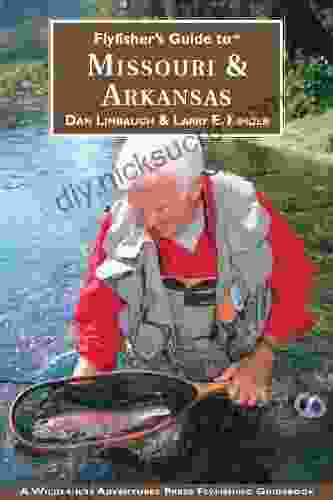
 Allen ParkerThe Ultimate Flyfisher's Guide to Missouri and Arkansas: Unlocking the Hidden...
Allen ParkerThe Ultimate Flyfisher's Guide to Missouri and Arkansas: Unlocking the Hidden... Calvin FisherFollow ·11.6k
Calvin FisherFollow ·11.6k Patrick RothfussFollow ·15.5k
Patrick RothfussFollow ·15.5k Neil GaimanFollow ·5.1k
Neil GaimanFollow ·5.1k Ervin BellFollow ·17.3k
Ervin BellFollow ·17.3k Douglas FosterFollow ·8.8k
Douglas FosterFollow ·8.8k Al FosterFollow ·13.5k
Al FosterFollow ·13.5k Anthony BurgessFollow ·15.9k
Anthony BurgessFollow ·15.9k Roberto BolañoFollow ·2.3k
Roberto BolañoFollow ·2.3k
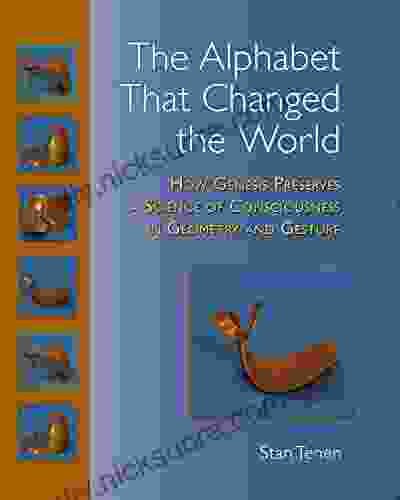
 Franklin Bell
Franklin BellHow Genesis Preserves Science Of Consciousness In...
The book of Genesis is...
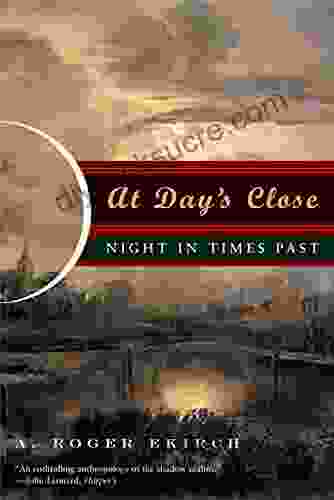
 Ted Simmons
Ted SimmonsAt Day's Close, Night in Times Past
As the sun dips...
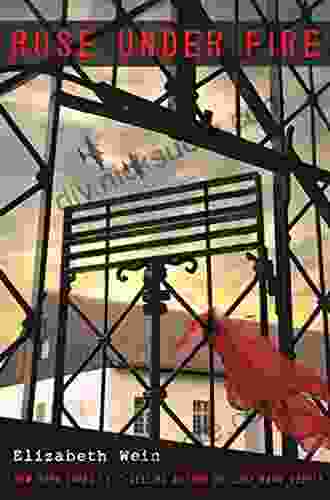
 Kenneth Parker
Kenneth ParkerRose Under Fire: Code Name Verity - A Heartbreaking and...
In the annals of...

 Jerry Hayes
Jerry HayesNurturing Massage for Pregnancy: A Comprehensive Guide to...
Pregnancy is...

 Blake Bell
Blake BellFill in the Blank: Word Kind of Animal Farm for Kids and...
This interactive fill-in-the-blank...
4.4 out of 5
| Language | : | English |
| File size | : | 2704 KB |
| Text-to-Speech | : | Enabled |
| Screen Reader | : | Supported |
| Enhanced typesetting | : | Enabled |
| Word Wise | : | Enabled |
| Print length | : | 288 pages |
| Lending | : | Enabled |


